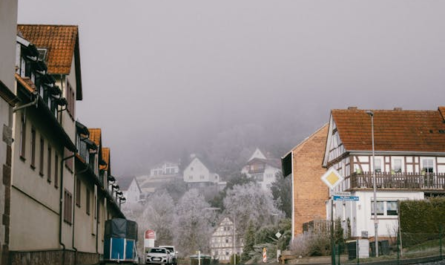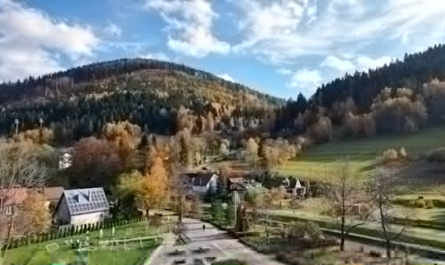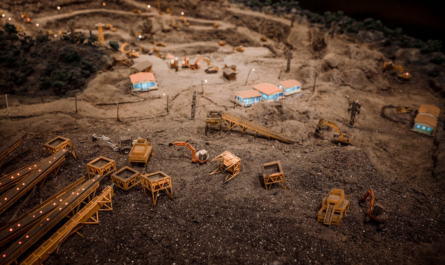Austria is home to some of the prettiest villages in the world, each offering a unique blend of history, culture, and stunning landscapes. Settled among the Austrian Alps, these villages exude an old-world charm that attracts tourists from across the globe. Among these historic gems, Alpbach stands out as one of the most beautiful and culturally significant villages. Known for its traditional wooden architecture, breathtaking scenery, and vibrant community life, Alpbach has often been ranked as Austria’s most beautiful village. In this article, we will explore why Alpbach tops the list of historic villages in Austria, delving into its rich history, architectural marvels, local traditions, and natural beauty.
A Glimpse into Alpbach’s History
Alpbach’s history dates back to the medieval period, with records mentioning it as early as the 12th century. The village developed primarily as an agricultural and mining settlement, benefiting from the rich natural resources of the region. Over the centuries, Alpbach maintained its rustic charm while gradually evolving into a sought-after tourist destination.
During the 20th century, the village gained recognition for its architectural consistency and commitment to preserving its historical heritage. In 1953, Alpbach was officially named “Austria’s Most Beautiful Village,” a title that it continues to hold in the hearts of many visitors. Today, the village serves as a harmonious blend of tradition and modernity, drawing visitors who seek an authentic Alpine experience.
Traditional Architecture and Cultural Significance
One of the defining features of Alpbach is its strict architectural code, which has helped the village retain its traditional wooden chalet-style buildings. Unlike other regions where modernization has altered the landscape, Alpbach has remained steadfast in preserving its heritage. Every building in the village follows a uniform design—wooden facades, carved balconies adorned with colorful flowers, and sloping roofs designed to withstand heavy snowfall.
This uniformity adds to the aesthetic appeal of Alpbach, making it look like a scene from a fairytale. The village’s commitment to preserving its architectural integrity is a testament to its cultural significance. Every home, inn, and public building reflects centuries-old traditions, contributing to Alpbach’s unique identity.
Natural Beauty and Scenic Landscapes
Alpbach is located in the heart of the Austrian Alps, providing visitors with stunning panoramic views of rolling hills, dense forests, and snow-capped peaks. The village sits at an elevation of about 1,000 meters (3,280 feet) above sea level, making it an ideal destination for nature lovers and adventure seekers alike.
During the winter months, Alpbach transforms into a winter wonderland, attracting skiers and snowboarders to its well-maintained slopes. The Alpbachtal Wildschönau ski area is renowned for its diverse terrain, catering to both beginners and experienced skiers. In summer, the region offers countless hiking and biking trails, allowing visitors to explore the lush alpine meadows, crystal-clear streams, and picturesque valleys.
The region’s flora and fauna further enhance its charm. Wildflowers bloom vibrantly in the summer, while the forests surrounding Alpbach are home to deer, chamois, and a variety of bird species, making it a paradise for wildlife enthusiasts.
Local Traditions and Festivals
Alpbach is not just about stunning landscapes and historic buildings—it is also a hub of rich traditions and cultural festivities. The village is known for its deep-rooted customs, which have been passed down through generations. One of the most notable traditions is the Alpbach Almabtrieb, an annual event held in autumn. During this festival, farmers lead their decorated cattle down from the alpine pastures, marking the end of the grazing season. The event is accompanied by music, dance, and local delicacies, making it a joyous celebration of rural life.
Another cultural highlight of Alpbach is the European Forum Alpbach. Established in 1945, this annual conference attracts intellectuals, politicians, scientists, and artists from around the world to discuss global issues. The forum has cemented Alpbach’s reputation as not only a scenic retreat but also a place of intellectual exchange and innovation.
Culinary Delights of Alpbach
A visit to Alpbach is incomplete without indulging in its delectable cuisine. Traditional Austrian dishes take center stage in the village’s cozy restaurants and family-run inns. Some must-try dishes include:
Here’s a more detailed description of each dish and specialty:
- Kaiserschmarrn: This classic Austrian dessert is a beloved treat that’s both light and satisfying. Made from a fluffy pancake batter, it’s cooked until golden brown and then shredded into bite-sized pieces. The pancake is typically served dusted with a generous amount of powdered sugar and accompanied by a fruit compote, such as apple or plum. Sometimes, it may also come with a side of cranberry jam or vanilla sauce. Its name, meaning “Emperor’s Mess,” comes from a dish that was favored by Emperor Franz Joseph I of Austria.
- Tiroler Gröstl: A comforting and filling dish, Tiroler Gröstl is a staple of Austrian mountain cuisine. This hearty one-pan meal consists of roasted potatoes, sautéed onions, and usually a mix of pork or beef, though it can also include bacon or sausage. The dish is fried to create a crispy crust, adding texture to the soft potatoes. It’s typically finished with a fried egg on top, making it a perfect breakfast or lunch option. Sometimes, herbs like parsley or chives are added for extra flavor.
- Kaspressknödel: These delicious cheese dumplings are a versatile part of Austrian cuisine. Made with a mixture of cheese (often from the region, such as Tyrolean mountain cheese), bread, and seasonings, the dumplings are either served in a flavorful broth, giving them a comforting and hearty texture, or pan-fried until golden and crispy. When served fried, they are often accompanied by a fresh salad. This dish highlights the rustic flavors of Tyrol and is a popular choice in both the winter and summer months.
- Alpbach Cheese: Alpbach, a picturesque village in the Tyrolean Alps, is renowned for its artisanal cheese. The region’s alpine pastures are home to cattle that produce milk used to create rich, flavorful cheeses. The cheeses from this area are typically semi-hard or hard varieties, with a sharp, creamy taste that reflects the pure mountain air and fresh grass. Visitors to the area should seek out cheeses such as Alpbacher Bergkäse, a mountain cheese, or Alpbacher Ziger, a tangy goat cheese. Often enjoyed on its own or paired with bread, these cheeses are a true reflection of the local terroir and are a must-try for any foodie exploring Tyrol.
Pairing these dishes with Austrian wines or locally brewed beer adds to the culinary experience, making every meal in Alpbach a delightful affair.
Sustainable Tourism and Environmental Conservation
Despite its popularity among tourists, Alpbach has maintained a strong commitment to sustainable tourism. The village promotes eco-friendly initiatives such as waste reduction, responsible hiking, and the use of renewable energy sources. The preservation of nature and historical sites is a priority for the local community, ensuring that future generations can continue to enjoy the beauty of Alpbach.
One of the best examples of Alpbach’s eco-conscious efforts is its car-free zones, encouraging visitors to explore the village on foot or by using environmentally friendly transport options. These measures not only reduce pollution but also enhance the overall experience of strolling through Alpbach’s charming streets without the disturbance of traffic.
Alpbach rightfully holds its place as Austria’s most beautiful historic village, offering a perfect blend of tradition, nature, and cultural richness. Its commitment to preserving architectural heritage, breathtaking alpine scenery, vibrant traditions, and sustainable tourism practices make it a must-visit destination for travelers seeking an authentic Austrian experience.
Whether you are an adventurer looking for outdoor activities, a history enthusiast eager to explore well-preserved traditions, or simply someone in search of a peaceful retreat, Alpbach has something to offer. Visiting this enchanting village is like stepping into a timeless world where history, nature, and community spirit come together to create an unforgettable experience.





